Crop: Tomatoes (Protected)
Location: East Yorkshire
Trial Duration: May – August 2023
Partners: Plant Raisers Ltd
1.1 Purpose of the Trial
This trial aimed to evaluate the effectiveness of SPSB in enhancing the growth of tomato “plugs” and “blocks” in commercial substrates like rockwool and coir (peat-free). The focus was on reducing NPK fertilizer usage by 25% and 50% while maintaining or improving product quality, yield, and time to harvest, thus lowering CO2 emissions. The SPSB was delivered through a drip system alongside the standard feed using a Dosetron.
The table below outlines the substrate types and trial conditions.
JPF = Jiffy peat free compost (coir) RW - Rockwool
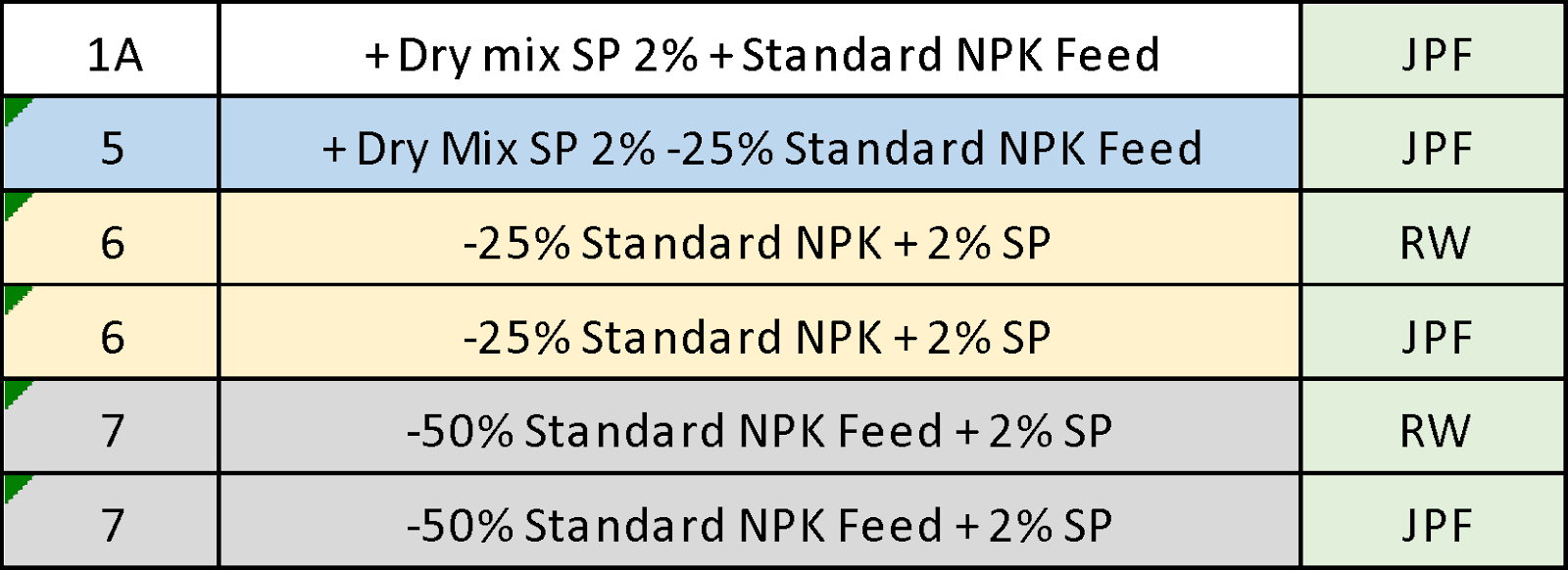
1.2 Key Findings
1.3 Conclusion
The SPSB trials successfully demonstrated the effectiveness of peat-free substrates in tomato cultivation using 25% less synthetic NPK feed with SPSB mixed directly in to the substrate prior to planting. The plants grown in peat-free substrates not only matched but often outperformed those grown in traditional commercial substrates, indicating a viable solution to the challenges of peat-free cultivation. Notably, SPSB in peat-free substrates led to faster plant establishment, earlier fruiting, and higher yields, even when planted 14 days later than the control group. Furthermore, the trials showed that SPSB allows for a reduction in standard NPK feed without compromising plant growth, highlighting the potential for more sustainable growing practices.
3.1 Crop Yield
The chart below shows that + SP Dry Mix 2% + Standard NPK feed in Jiffy peat fee substrate (coir) yielded 54% more fruit than the nearest alternative (control).

The chart below shows that the "+ SP Dry Mix 2% + Standard NPK feed" in Jiffy peat-free substrate (coir), planted 14 days later, reached first pick in just 68 days, 6 days ahead of the control. Meanwhile, the "+ SP Dry Mix 2% – 25% NPK feed" in the same substrate achieved first pick in 74 days, matching the control's timeline.
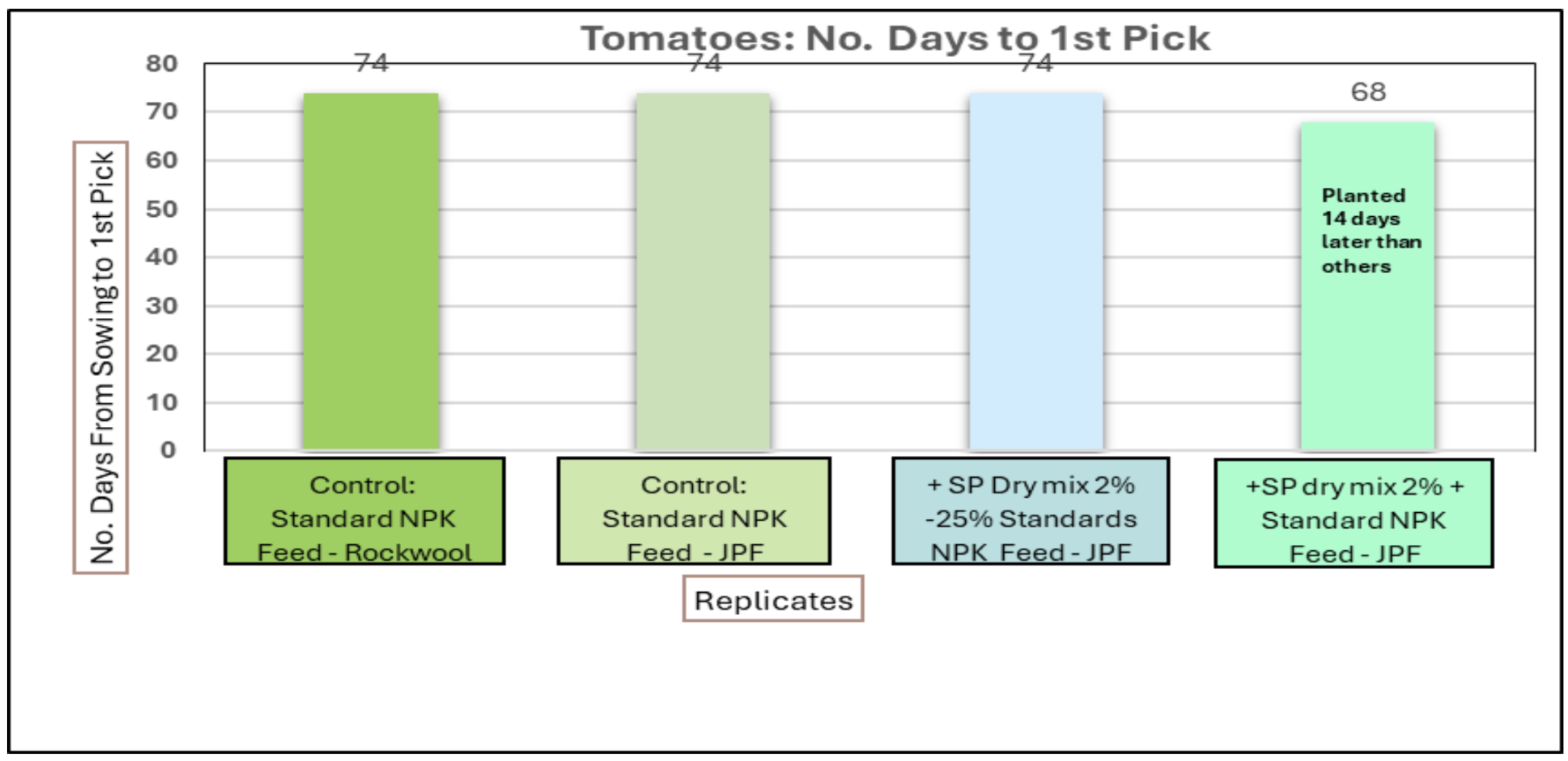
3.3 Plant Growth and Health
The pictures below detail the final day of the trial, all plants performed well, with the best results from the peat-free coir substrate combined with SPSB. This mix, both with standard NPK feed and a 25% reduction, outperformed others, despite being planted two weeks later than the control.
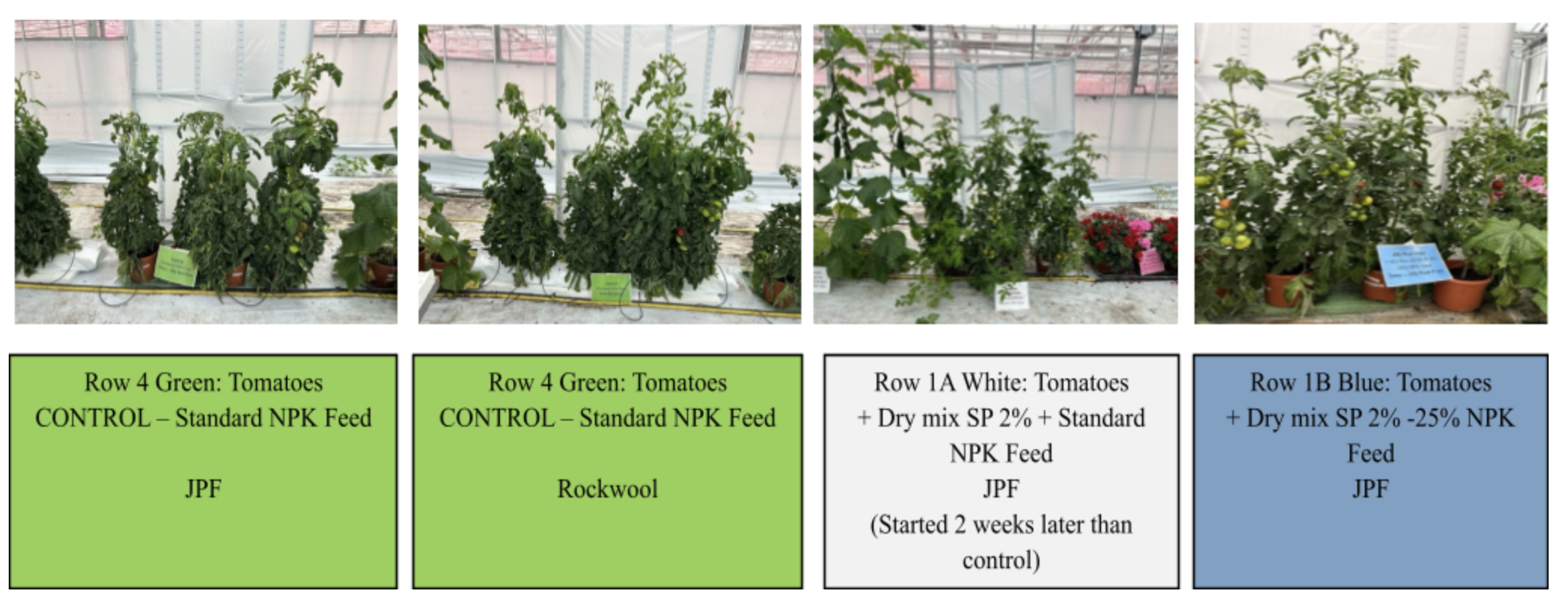
3.4 Statistical
3.4 Roots
Both +Dry mix SP 2% + Standard NPK feed and + Dry mix 2% -25% Standard NPK feed produced significant root growth in excess of Control.
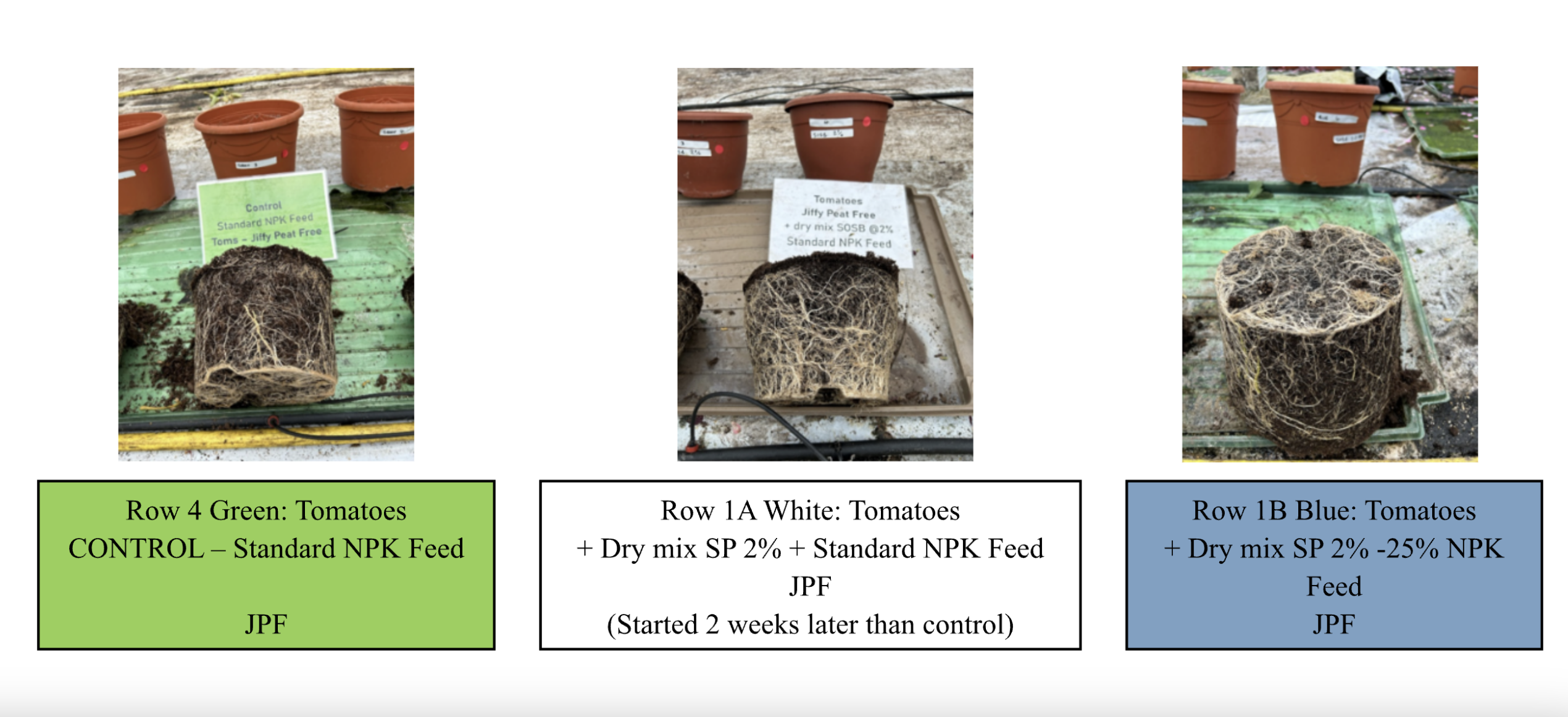
Nutrition:
Nutritional content of the harvested fruit was analised by a UKAS accredited laboratory to standard 17025.
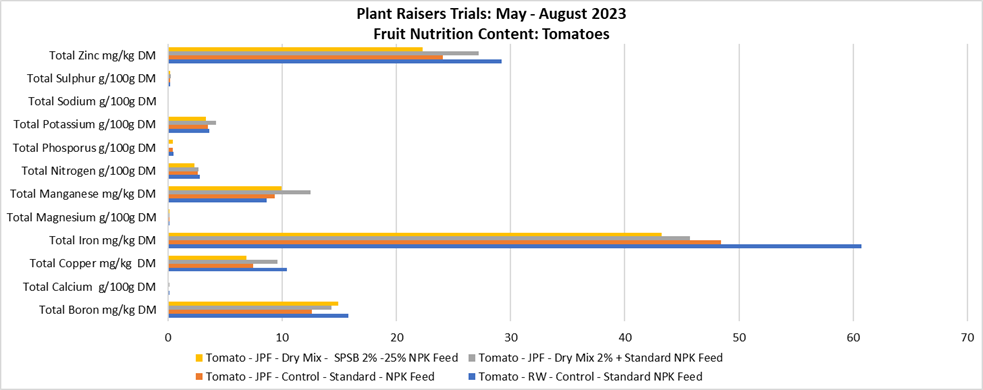
RW Control has the highest mineral content, but JPF SPSB Dry Mix 2% + Standard NPK outperforms all other peat-free mixes, showing an advantage over the JPF Control. A smaller reduction in synthetic N (less than 25%) could further optimize nutrient savings while supporting the commercial use of peat-free compost.
4.1 Summary of Results
Early Harvest: Crops planted in the modified substrate were ready for harvest 6 days earlier than those in the control group, even though they were planted 14 days later. This suggests that the modified substrate accelerated crop growth.
Increased Yield: The crops grown in the modified substrate produced more fruit than those in the control group, indicating improved productivity.
Nutrient Efficiency: The modified substrate allowed for a reduction in the use of NPK (Nitrogen, Phosphorus, and Potassium) feed by up to 25%, highlighting more efficient nutrient use.
In conclusion, the trial shows that the removal of peat from substrates can lead to faster, more productive crops with less reliance on traditional fertilizers.

O SoilPoint Soil Enhancer aumenta o sequestro de carbono no solo e na biomassa acima do solo, revertendo efetivamente a tendência de aumento dos gases de efeito estufa na atmosfera.
Ao adotar as práticas inovadoras de gestão agrícola da SoilPoint, os agricultores podem gerar créditos de carbono e, ao mesmo tempo, melhorar a saúde e a sustentabilidade do solo.